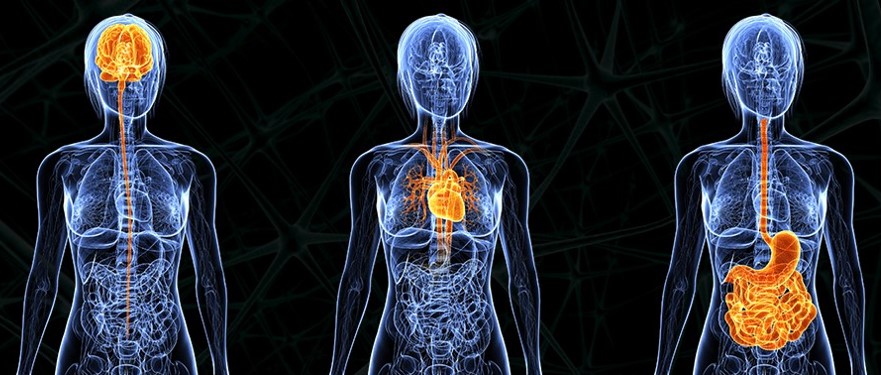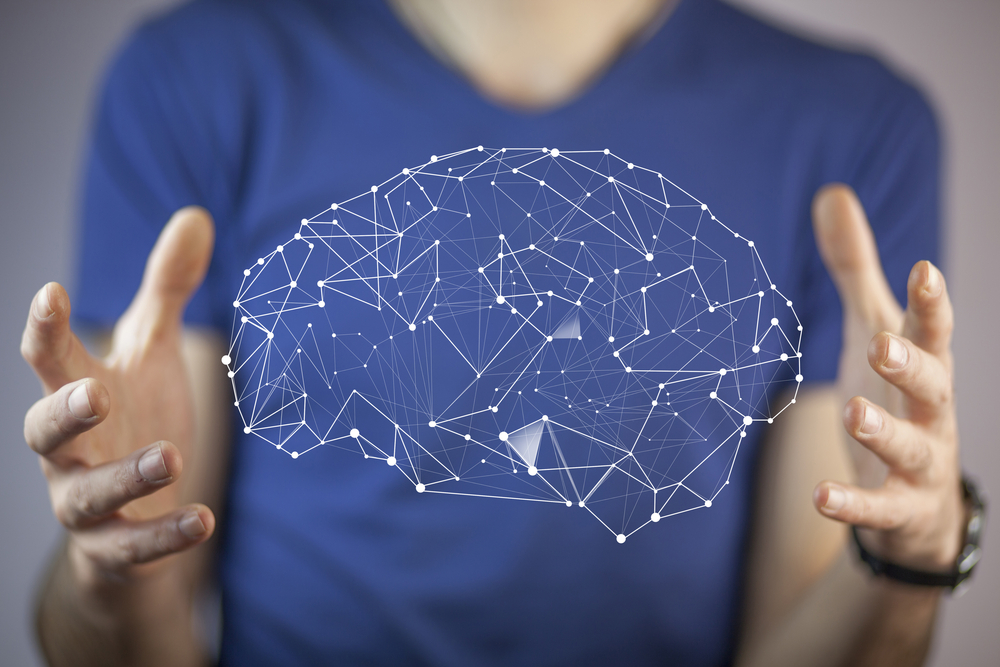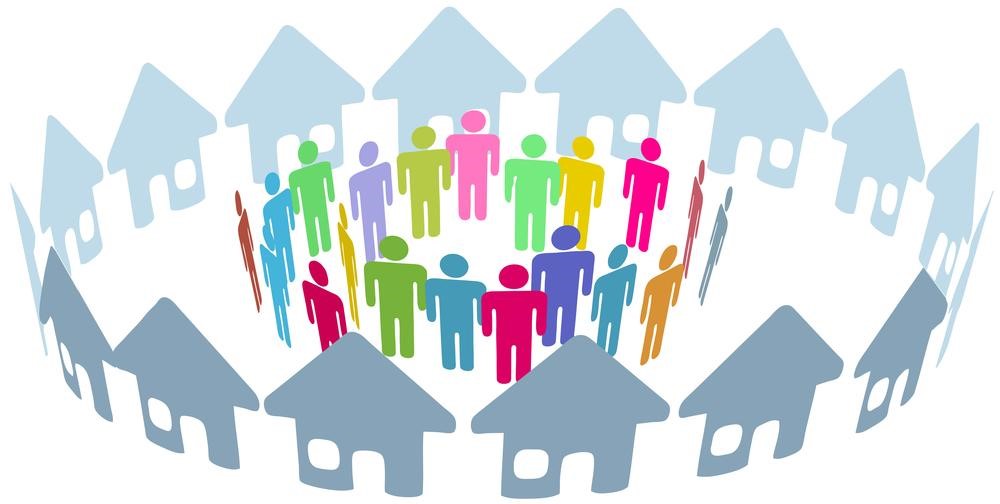
Level 2 - Integrated Intelligences and Neuro Linguistic Programming
Thank you for taking action to enhance your coaching skills
through this programme facilitated by Lusa Social
Entrepreneurship Institute
Have
you ever considered that we have multiple neural networks ( or
brains) namely the head, heart and gut brains. Apart from their
obvious different physical functions, they also perform different
mental and emotional roles. It is the integration of these three
brains and the role they play in our mental and emotional states
that allow us to experience and respond to stimuli in a very
powerful way. Through the Integrated Intelligences coaching, you
will be upskilled to help yourself and others make decisions by
finding congruence between these three networks.
We
cannot deny the power of our thoughts and words in creating our
circumstances. When certain thoughts and language become our
daily practice, it is proven that that becomes our reality.
In the area of Neuro Linguistic Programming we explore how
thoughts, language and patterns of behaviour learned through
experiences can affect future success and how by taking control
of these we have the power to change specific outcomes. In
this course you will be guided through the core elements,
methodologies and techniques essential for a NLP
practitioner.
We hope that this course will help you
serve yourself and your clients more powerfully
Regards
The Lusa Neurocoaching Team
Course Objectives:
This course is aimed at providing skills for becoming an NLP and
Integrated Intelligences Practitioner to enhance your coaching
services. It will include the core elements, methodologies and
techniques essential for using NLP and to effect long
lasting change. Integrated Intelligence Coaching embraces the
knowledge that we possess multiple intelligence and that by
integrating these multiple neural networks we are able to gain
greater insights and congruency especially in decision
making.
Course Outcomes:
On completion of this course you will have embedded knowledge
with regards to:
- Understand the pillars, principles and presuppositions that govern NLP
- The use of various NLP techniques
- The use of Integrated intelligences coaching

Neuro Coaching for Leader Coaches within Organizations
Welcome Message
Welcome to a life-changing experience! Thank you for making the exciting decision to become a coach through the skills programmes facilitated by Lusa SEI. This course is designed to empower you to make a meaningful difference in your life and the lives of others.
Introduction
Coaching is a transformative approach that helps clarify challenges and issues that may seem impossible to resolve. It engages the subconscious mind to uncover the real motives and roots of thoughts and beliefs that do not serve us. By accessing different neuro pathways, new options emerge, enabling us to see dilemmas and challenges in a fresh light. Through this process, individuals realize they have choices and are empowered to make important, life-changing decisions.
Within organizations, coaching strengthens performance, deepens engagement, and unlocks human potential. It enables employees to develop new skills, navigate challenges, clarify goals, and contribute meaningfully to organizational success. As an internal coach, you are a catalyst for insight, accountability, and growth, guiding others to discover their own solutions and step into their highest effectiveness.
Internal coaching is grounded in the belief that humans are inherently resourceful, creative, and capable. We are continually uncovering who we truly are, what we are called to contribute, and how we can shape our lives and work with presence, purpose, and gratitude. Coaching accelerates this journey by offering challenge, encouragement, and a structured process for meaningful, lasting growth.
Course Objectives
To introduce participants to the knowledge and key skills required for effective coaching.
The philosophy of coaching is that, as humans, we are inherently capable and resourceful. Coaching accelerates personal and professional growth by providing structured support, challenge, and accountability, enabling individuals to realize their potential.
Course Outcomes
Upon completion of this module, participants will have embedded knowledge relating to:
-
Understanding the coaching process, including key models such as GROW, CREATE, SCARF, and the Dance of Insight
-
Identifying opportunities for coaching in personal, interpersonal, and organizational contexts
-
Understanding the nature of coaching relationships, including boundaries, ethics, and confidentiality
-
Working effectively with others by applying powerful questions, psychological safety principles, and neuroscience-informed techniques during coaching sessions

Neuro Resilience Coaching
Objectives:
To equip students with the wisdom, skills and tools to live a resilient life and to support others to do the same.Outcomes:
Students will learn how to:
Have a solid sense of Identity, Self-Esteem and Self Confidence
Quickly find creative and effective ways to handle unexpected situations
Handle constant change without getting resiliency fatigue
Gain useful lessons from bad experiences
Avoid feeling anxious about sudden change and unexpected challenges
A higher degree of assertiveness
A clearer vision for their life
A stronger sense of Agency
Get better and better each year at handling life’s challenges
Neuro Coaching Level 1 2021
The philosophy of coaching is that as humans we are great! That we're all discovering who we really are, what we would love to do and have in our lives and that we can develop certainty, presence and gratitude for making things happen in our lives far faster and more easily by having a coach who can assist, support and challenge us to be all we can be.
COURSE OBJECTIVES:
To introduce participants to knowledge and key skills, required for effective coaching and bringing long term transformational change
Coaching will:
Assist you to think bigger, smarter or differently
Ensure that you set better goals and reach them
Help you to do more than you would have done on your own
Become your partner on a journey to self-discovery and setting of goals
Achieve in a relaxed, confident manner
Provide you with the tools, support and structure to accomplish more
Assist you to break through the barriers which hold you back from being your best
The benefits of coaching in personal and professional development:
To set better goals and reach them faster
To make significant changes in the way you think about your abilities
To build personal competence to meet the on-going demands of work and personal life
To become more successful in your personal and professional lives
To grow and change with confidence and presence
To do things more easily and live a life of balance
The results you can personally expect :
Greater clarity of who you are and where you are heading
Gratitude for what you have accomplished
To make effective and focused actions immediately
Stop putting up with what is dragging you down
To create momentum so that it is easier to get results
To be in respectful and caring relationships with others
Being enabled to help others achieve their full potential
Assisting others to take personal responsibility for their choices
COURSE OUTCOMES:
On completion of this course you will have embedded knowledge with regards to:
Being able to define the key concepts associated with coaching
Understanding the coaching process
Identifying opportunities for coaching within personal and professional contexts
Understanding the nature of relationships that must be managed in a coaching program
Communicating effectively in explaining the coaching purpose and process
Working effectively with others during coaching sessions
Being able to organise and manage oneself and one's activities in preparing a coaching schedule
Identifying and solving problems relating to the implementation of a coaching process
Being acquainted with various feedback techniques and which approach to use

Transformer
The aim of the Program is to empower and inspire you to become the best version of yourself. In order to reach your full potential, you need to understand yourself better, you also need to understand others better, to ensure you can navigate optimally through life. Life is a journey with many high and low points and through this training we would like to give you tools and a different perspective to help you build your own resilience. We hope that this will also empower you to develop those around you, to live lives of meaning and purpose.

Generation @
Generation @ is a life skills programme for learners and teachers that builds emotional intelligence and resilience.

Basic Family Law and Divorce Mediation
Conflict situations are a major feature of our current reality and conflicts are common in the all situations where people interact with one another.
Being able to manage conflict situations that enable the mutually
beneficial outcomes for both parties is possible through
effective mediation. Furthermore, mediation skills are
critical in all inter-personal, employment and civil conflict
environments and crucial for effective communication skills.
We invite you to become highly skilled in the exciting
principles, processes, and techniques of mediation to be able to
manage conflict in family disputes.

Toolkit for Non-Profit Organisations
Why was this toolkit developed?
Well, let me start by being very honest, this toolkit was developed because I wish I had one when I started working at a new NPO many years ago. When you walk into a new position and there is no basic training on where to go and what to do, you learn the hard way.
I feel that this toolkit is necessary to help people along the way to understand the dynamics of running a NPO and also the best way to start a new initiative.
This toolkit however is not a must do document, it is a guiding document to help you grow from one aspect to the other. Some of the material might seem impossible at first, but that is actually a good thing. What would be the point of reaching for the stars when they are not even further than the roof?
See this document then as a guiding star, a document which you will be able to use through all your stages of development. You must understand that the chances are that you will not be able to necessarily achieve all of it at once. That was not the intention of this document. I hope that the value you will get out of it will be worth the effort of making it your own.
May you always strive to improve yourself and your organisation on the journey of growth. In the end the success of your NPO depends on your success as a leader, whether you are a volunteer or a paid staff person.
Good luck and may this document help you to achieve what you never dreamt you could.
- Veronica Cronje
- Executive Director
- Lusa Community Chest

Community Development NQF Level 5 - Cycle 1
This qualification is designed to empower people who are already working, or who intend to work, in any setting relevant to community development. It provides learners with the competencies which they need to act as change agents and so add value in the practice of community development.
.
Course Objectives:
Learners acquiring this qualification will develop the knowledge and skills to operate effectively in community development environments, being able to support individuals and organisations in achieving their community development goals and objectives.
Course Outcomes:
Learners will gain the competencies needed to identify community needs while working with communities and households, to identify and plan community projects for social change, to improve the quality of life of communities in an integrated and sustainable manner and to mobilise resources.
Duration: 12 months
Unit standards are clustered into Learning programmes that will be facilitated via live online training, or face to face interaction.
Further notional hours will be accumulated through self paced learning of material on this LMS platform.
Competency will be assessed once all assessments and portfolios of evidence have been submitted, assessed and moderated.
ORIENTATION
One week before commencement of
tutorials, learners will be sent a link to an information and
orientation session.
This session will be an opportunity to sort out any electronic
issues and to provide learners with the outline of the course
curriculum. Learners will be guided through the
competency requirements, learner appeals process and the
assessment process.
The qualification is divided into learning programmes, in which
related unit standards have been clustered. All learning material
including learner guides, assessments, assignments and
learner workbooks/POE guides are provided for each unit
standard. Learners will be required to do additional reading and
research for assignments and assessments.
Please note that all time spent on the LMS is logged and is
required to show proof of attendance and notional hours towards
each unit standard.
ACADEMIC SUPPORT
Facilitators will provide academic
support for all the material covered. Support will be provided to
ensure completion of all assessments and POES as per
requirements.
TECHNICAL SUPPORT
Technical support for any issue
encountered whilst using LMS platform will be provided by 2
members of the Lusa team. They will be introduced to you at the
orientation session, and you will be provided with their contact
details. Further support is provided by Pluto, the service
provider and technical experts for the LMS system .
ELECTRONIC RESOURCES REQUIRED
The following
electronic learning resources are required to be in place in
order for you to be able to proceed with this course:
Either a laptop; desktop; smartphone
or tablet
Stable internet connectivity
Data/Wifi/Fibre
Zoom connectivity

Community Development NQF Level 5 - Cycle 2
This qualification is designed to empower people who are already working, or who intend to work, in any setting relevant to community development. It provides learners with the competencies which they need to act as change agents and so add value in the practice of community development.
.
Course Objectives:
Learners acquiring this qualification will develop the knowledge and skills to operate effectively in community development environments, being able to support individuals and organisations in achieving their community development goals and objectives.
Course Outcomes:
Learners will gain the competencies needed to identify community needs while working with communities and households, to identify and plan community projects for social change, to improve the quality of life of communities in an integrated and sustainable manner and to mobilise resources.
Duration: 12 months
Unit standards are clustered into Learning programmes that will be facilitated via live online training, or face to face interaction.
Further notional hours will be accumulated through self paced learning of material on this LMS platform.
Competency will be assessed once all assessments and portfolios of evidence have been submitted, assessed and moderated.
ORIENTATION
One week before commencement of
tutorials, learners will be sent a link to an information and
orientation session.
This session will be an opportunity to sort out any electronic
issues and to provide learners with the outline of the course
curriculum. Learners will be guided through the
competency requirements, learner appeals process and the
assessment process.
The qualification is divided into learning programmes, in which
related unit standards have been clustered. All learning material
including learner guides, assessments, assignments and
learner workbooks/POE guides are provided for each unit
standard. Learners will be required to do additional reading and
research for assignments and assessments.
Please note that all time spent on the LMS is logged and is
required to show proof of attendance and notional hours towards
each unit standard.
ACADEMIC SUPPORT
Facilitators will provide academic
support for all the material covered. Support will be provided to
ensure completion of all assessments and POES as per
requirements.
TECHNICAL SUPPORT
Technical support for any issue
encountered whilst using LMS platform will be provided by 2
members of the Lusa team. They will be introduced to you at the
orientation session, and you will be provided with their contact
details. Further support is provided by Pluto, the service
provider and technical experts for the LMS system .
ELECTRONIC RESOURCES REQUIRED
The following
electronic learning resources are required to be in place in
order for you to be able to proceed with this course:
Either a laptop; desktop; smartphone
or tablet
Stable internet connectivity
Data/Wifi/Fibre
Zoom connectivity







